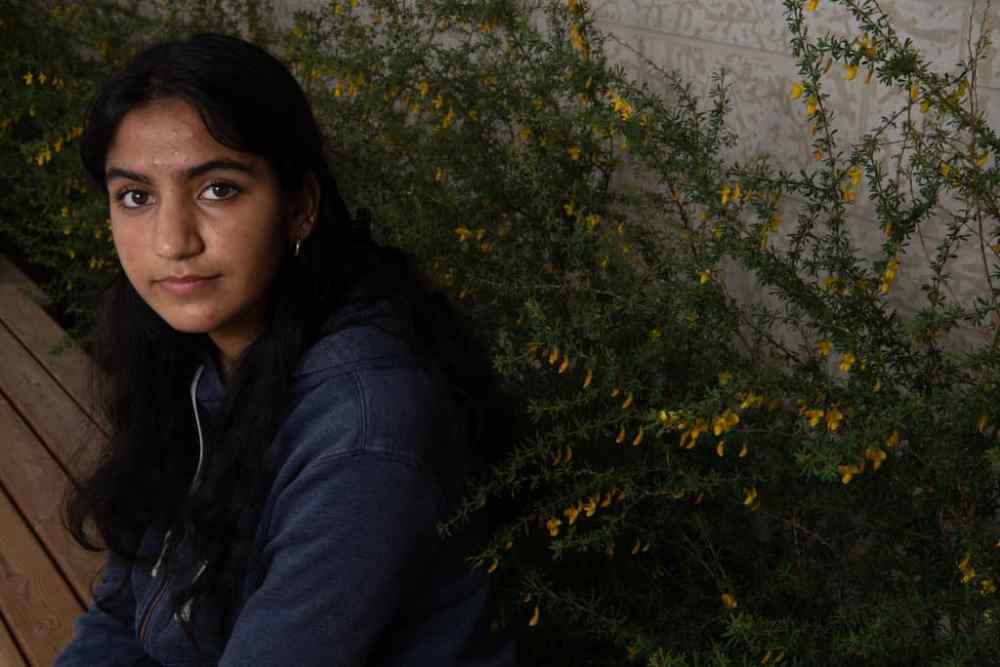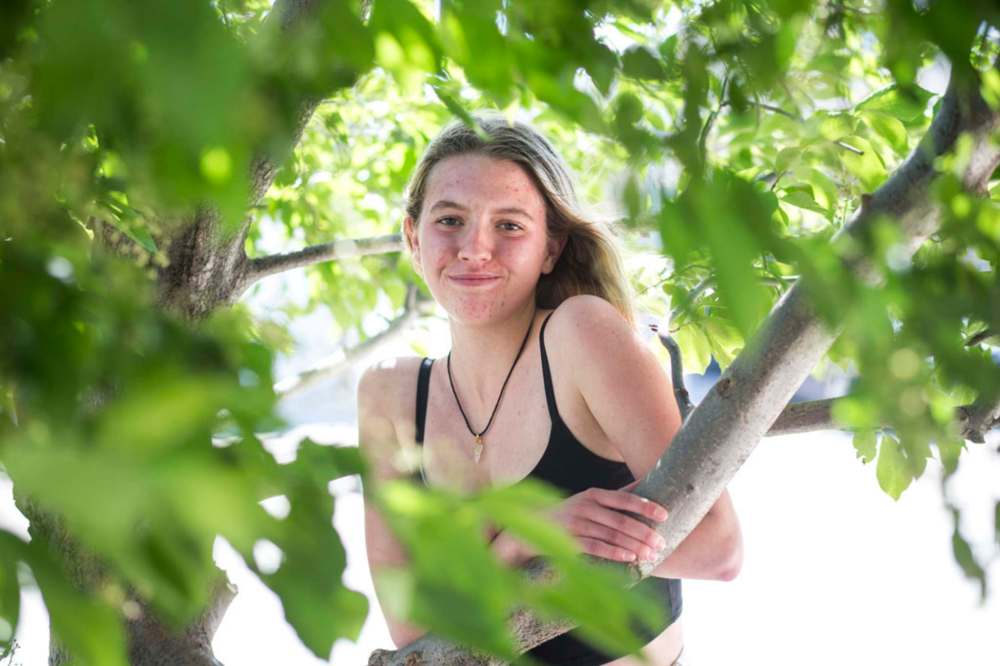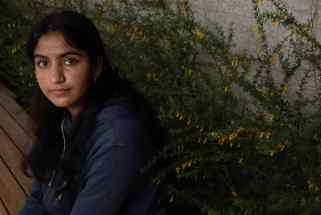Alarms ring on pandemic state of student mental health
Read this article for free:
or
Already have an account? Log in here »
To continue reading, please subscribe:
Monthly Digital Subscription
$0 for the first 4 weeks*
- Enjoy unlimited reading on winnipegfreepress.com
- Read the E-Edition, our digital replica newspaper
- Access News Break, our award-winning app
- Play interactive puzzles
*No charge for 4 weeks then price increases to the regular rate of $19.00 plus GST every four weeks. Offer available to new and qualified returning subscribers only. Cancel any time.
Monthly Digital Subscription
$4.75/week*
- Enjoy unlimited reading on winnipegfreepress.com
- Read the E-Edition, our digital replica newspaper
- Access News Break, our award-winning app
- Play interactive puzzles
*Billed as $19 plus GST every four weeks. Cancel any time.
To continue reading, please subscribe:
Add Free Press access to your Brandon Sun subscription for only an additional
$1 for the first 4 weeks*
*Your next subscription payment will increase by $1.00 and you will be charged $16.99 plus GST for four weeks. After four weeks, your payment will increase to $23.99 plus GST every four weeks.
Read unlimited articles for free today:
or
Already have an account? Log in here »
Hey there, time traveller!
This article was published 02/06/2021 (1650 days ago), so information in it may no longer be current.
The latest wave of the novel coronavirus pandemic has hit Anantjot Khosa the hardest.
Isolated at home, doing remote learning, yet again, the Grade 11 student has more time to overthink — about her marks, loss of motivation, and the last year in missed opportunities.
These are among the items the 16-year-old said come up during counselling sessions, which she started doing this spring through school.
“It’s really mentally draining and miserable to be in your house all day,” said Anantjot, who attends Maples Met School in Winnipeg. “Just talking about those sorts of things helps me to feel like I’m not alone.”

Health-care professionals and school staff are increasingly alarmed about the state of student mental health, as the pandemic drags on for youth, most of them studying remotely during the recent spike in COVID-19 cases, cut off from extracurriculars and in-person visits with peers.
Students are tired, unmotivated and lonely. Some are undereating or overeating as a form of coping. Others are reporting high stress, depressive moods, and poor sleep.
“Kids have made a lot of sacrifices for the societal good, whether it be school shutdowns or team shutdowns,” said Dr. Norman McLean, a pediatrician at the Manitoba Clinic.
“It’s really mentally draining and miserable to be in your house all day.”
– Anantjot Khosa
Whereas the physical health implications of lockdowns have been more obvious to the eye: weight gain, owing to the rise in sedentary behaviour, McLean said the lasting impacts of the pandemic on mental health remain uncertain.
Not only have teenagers been disrupted at a key developmental stage during which they rely on social interactions and become more independent from family as they figure out who they are, but they are also taking on their parents’ stresses related to the pandemic, he added.
A study of parents and youth out of Toronto’s Hospital for Sick Children found the mental health of schoolchildren in Ontario suffered during the first wave of the pandemic in 2020, as a result of greater stress from social isolation.
Seventy per cent of children between the ages of six and 18 reported deterioration in at least one of the following mental health domains: depression, anxiety, irritability, attention span, hyperactivity, and obsessions or compulsions.
“Kids have made a lot of sacrifices for the societal good, whether it be school shutdowns or team shutdowns.”
– Dr. Norman McLean, a pediatrician at the Manitoba Clinic
The research, which drew on questionnaire responses from more than 1,000 parents and almost 350 youth between the ages of 10 and 18, between April and June 2020, was published this winter.
Following a year of roller-coaster restrictions, private and public mental health practitioners in Manitoba have been bombarded with demand.
Demand for services at the Manitoba Adolescent Treatment Centre has increased “dramatically” throughout the pandemic, said Dr. Jaye Miles, a psychologist at the facility. Typically, it takes approximately three weeks for a referral to be reviewed and redirected to support through centralized intake; Miles said intake is currently 2.5 to three months behind in dealing with cases.
“I’m prescribing way more (antidepressants) this past year than I’ve ever prescribed, ever, in my practice, and you have to follow those kids carefully,” said Dr. Michele Feierstein, a pediatrician of more than 35 years.
“I’m prescribing way more (antidepressants) this past year than I’ve ever prescribed, ever, in my practice, and you have to follow those kids carefully.”
– Pediatrician, Dr. Michele Feierstein
Eight-, nine- and 10-year-olds have been coming in after experiencing panic attacks since the pandemic began, she said. “It’s unbelievable.”
Anxiety and sleeping disorders have been some of the most common diagnoses as of late, according to Feierstein and Manitoba Clinic colleagues.
“It’s a different kind of anxiety now. Before, I was nervous about a presentation or things like that. Now, I’m nervous about what’s unknown and what’s going to happen next,” said Madi Daley, a Grade 10 student at J.H. Bruns Collegiate.
Madi, 16, said there’s been a “slight shift” in the culture at her Winnipeg school when it comes to supporting mental health amidst the pandemic. Some teachers have been more understanding around assignment deadlines, but there is room for improvement when it comes to supporting students, she said.

Activities around mindfulness and resilience have become more common in K-12 schools to equip students with skills to manage their stress. Students have also taken things into their own hands.
Emma Williamson has been running a wellness club for students at Maples Met to connect and discuss coping mechanisms weekly. One of the ways the Grade 11 student has been taking care of her mental health and challenges with social anxiety this year is through meditation.
Madi has been painting to destress, while Anantjot has been more intentional about exercising outdoors to do the same.
As far as McLean is concerned, arming schools with proactive tools to build positive mental health among students is key.
“As pediatricians, we’re always advocating for increased mental health resources, good funding for education and for recreation for all kids. We want to keep kids physically active. We want to keep them socially engaged. We want to stimulate their creativity, their resourcefulness. We want to balance screentime with sleep and healthy eating and physical activity,” he said.
“I think (the pandemic) has brought a lot of those issues to the forefront.”
maggie.macintosh@freepress.mb.ca
Twitter: @macintoshmaggie

Maggie Macintosh reports on education for the Winnipeg Free Press. Funding for the Free Press education reporter comes from the Government of Canada through the Local Journalism Initiative.
Our newsroom depends on a growing audience of readers to power our journalism. If you are not a paid reader, please consider becoming a subscriber.
Our newsroom depends on its audience of readers to power our journalism. Thank you for your support.
History
Updated on Wednesday, June 2, 2021 9:28 PM CDT: adds photo.







.jpg?h=215)